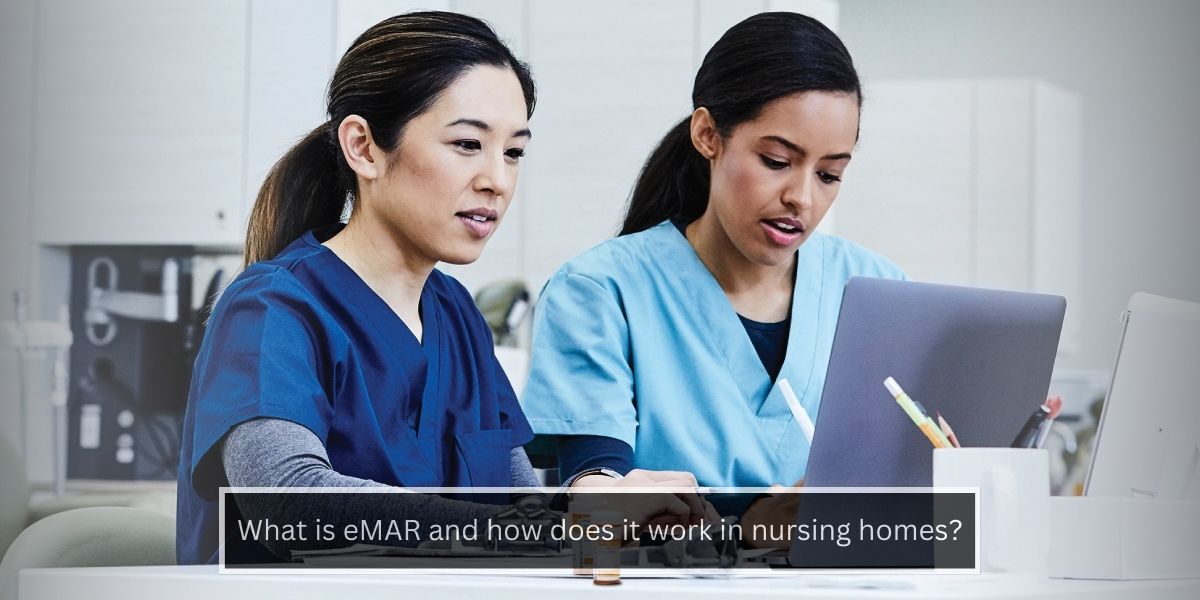Electronic Medication Administration Records (eMAR) are digital systems designed to replace traditional paper-based medication administration records (MAR) in healthcare settings, including nursing homes. eMAR systems streamline the medication administration process, improve accuracy, and enhance patient safety. They provide real-time documentation and comprehensive medication management.
How eMAR benefits nursing home care:
1. Digital Documentation:
eMAR systems let nurses and caregivers document medication administration electronically. Instead of manually recording each dose on paper, healthcare providers use computers, tablets, or other digital devices to enter information. This real-time documentation reduces the risk of errors associated with handwritten records.
2. Integration with Electronic Health Records (EHRs):
eMAR systems are often integrated with EHRs, thus providing a seamless flow of information. This integration ensures that all relevant patient data, including medical history, allergies, and current medications, is readily accessible to healthcare providers. Such accessibility aids in informed decision-making and quality patient care.
3. Automated Alerts and Reminders:
One of the key features of eMAR systems is the automated alerts and reminders for upcoming medication doses, missed doses, or potential drug interactions. These alerts help ensure that medications are administered on time and according to prescribed schedules. It ensures adherence to treatment plans and reduces the likelihood of missed or incorrect doses.
4. Barcode Scanning:
Many eMAR systems incorporate barcode scanning technology. Nurses scan barcodes on the patient’s wristband and medication packaging to verify the correct patient and medication before administration. This process further reduces the risk of medication errors and ensures that the right patient receives the right medication at the right dose and time.
5. Improved Communication and Coordination:
eMAR systems facilitate better communication and coordination among the healthcare team. Since the medication records are digital and accessible to authorised personnel from multiple locations, it is easier for nurses, doctors, and pharmacists to collaborate and make informed decisions about patient care. This improved coordination is important in nursing homes, where multiple caregivers may be involved in a resident’s care.
6. Reporting and Analytics:
Nursing home administrators and healthcare providers can generate reports on medication administration patterns, compliance rates, and potential issues. These insights help in identifying trends, improving processes, and ensuring regulatory compliance.
eMAR system not only benefits the healthcare providers but also ensures that residents in nursing homes receive the highest standard of care.







